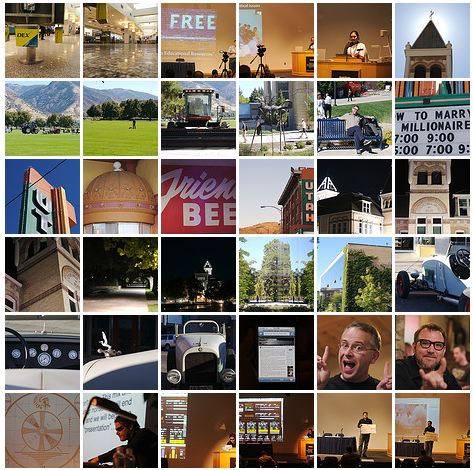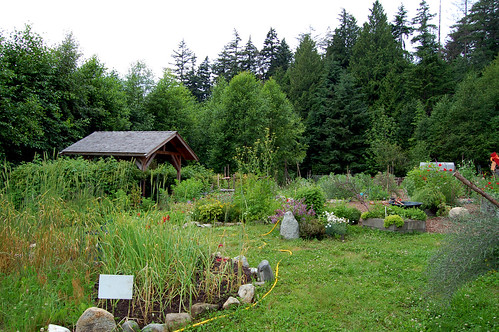
Traveling without moving by FredArmitage
I have largely suppressed my memories of being UBC’s ‘learning objects project coordinator’ 5 or 6 years back. But I do vividly recall the drive to develop a robust form of “federated search” that would allow users to search across a range of locally-hosted learning resource collections. Were such a thing possible, some of us believed the skies would part and we would enter a blissful state of findability and connectedness. Of course, it wouldn’t be easy. We would need to carefully catalogue our materials using a detailed and often mysterious metadata specification, and our local repositories would similarly be required to meet rigorous standards, perhaps implementing a painstakingly developed communication layer to connect these pieces together. Expensive, arduous, tedious, and confusing. But surely the payoff would be worth it…
Or, we can just let Google do it for us for free with a few minutes work. Here’s a recipe for rich, chocolatey, open educational searchy goodness, adapt it to your own tastes.
* Assemble your ingredients. ZaidLearn saved us a lot of hassle by assembling this handy list of open educational resource (OER) sites.
* You knew that Google already allows you to set up your custom search engine by whatever domains you wanted, right? So Tony Hirst took the ZaidLearn list and used it to quickly create an OER Search Engine. You can put the search box anywhere you want, including right here, just by cutting and pasting a little HTML:
* Then Scott gets it into his disturbingly shaved head to have the list of supported search domains run off of a wiki, so anybody can come in and add resources collections. I added a few bits, including the Creative Commons rich media search, though it might be necessary to paste in some of the specific collections.
It seems to work pretty well. Sure enough, my search on “Willinsky” not only brings up a fantastic presentation John Willinsky gave at UBC last fall that’s hosted on Blip.tv, it also turned me on to this tantalizing set of talks on the economics of open content that I was previously unaware of.
The technology cost is negligible. Someone like Tony can go into the Google Ajax Search API and/or work some Yahoo Pipes magic to do even cooler stuff — but even an idiot like me can do quite a bit with some cutting, pasting and wiki editing.
As far as I know, Zaid Ali Alsagoff, Tony Hirst and Scott Leslie have never met, and there is no coordinating body to facilitate their collaboration. What is required (in addition to Google’s scary hegemonic presence providing a powerful platform) is openness. The resources need to be indexed on the open web, and when people do cool stuff and then blog about it, others can take the work to unexpected places.
A coda. I’m not sure if Google’s Dynamic Feed Control Wizard fits into this picture, but it is kind of nifty. All I have to do is type “zaidlearn, ouseful info, edtechpost” into the “Feeds Expression” field, and Google finds the feeds and quickly generates this customizable display:
Loading…
@import url(“http://www.google.com/uds/solutions/dynamicfeed/gfdynamicfeedcontrol.css”);
function LoadDynamicFeedControl() {
var feeds = [
{title: ‘edtechpost’,
url: ‘http://www.edtechpost.ca/wordpress/feed/’
},
{title: ‘zaidlearn’,
url: ‘http://zaidlearn.blogspot.com/feeds/posts/default’
},
{title: ‘ouseful info’,
url: ‘http://feeds.feedburner.com/ouseful’
}];
var options = {
stacked : true,
horizontal : false,
title : “OER Engine Hero Roll”
}
new GFdynamicFeedControl(feeds, ‘feed-control’, options);
}
// Load the feeds API and set the onload callback.
google.load(‘feeds’, ‘1’);
google.setOnLoadCallback(LoadDynamicFeedControl);










